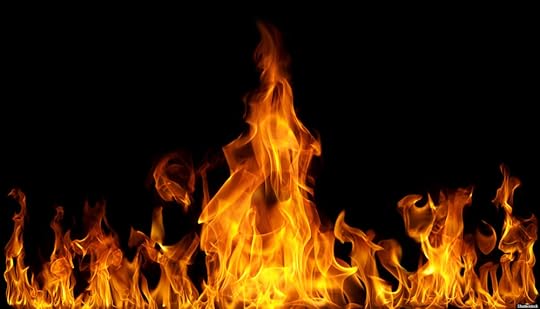Building on Fire: Pyrotheology in Practice

One of my early concerns with what goes under the name of Radical Theology was the way that it was a primarily a university discourse. An individual studied various thinkers, gained qualifications designed to prove their knowledge of the subject and ultimately went on to do research, develop the ideas and teach others.
While Radical Theology has a rich theoretical tradition, I’ve always approached it as an existential practice. More specifically, it is a constellation of deconstructive practices that helps an individual or community make peace with doubt, complexity and ambiguity, opens up a sensitivity to the excluded, and increases ones sense of personal responsibility (among other things).
One of the reasons that psychoanalysis interests me is that the training does not take place within the frame of a university discourse. Instead it happens in associations that combine personal analysis, exploration of case studies and group supervision. Ultimately putting all of this into conversation with various analytic theories.
This approach is partly a reflection of the goals of analysis. Psychoanalytic practice isn’t concerned with educating the person on the couch. Neither is the analyst someone who uses a body of knowledge to diagnose the subject. This means that it is quite different from the medical profession. If, for example, someone has a broken bone, a medical doctor will diagnose the condition and give the appropriate care.
In contrast to this universal approach, the psychoanalyst doesn’t have any expert knowledge of a person’s unconscious. It is singular to the individual. A patient will likely put the analyst in the position of someone with expert knowledge (the subject-supposed-to-know), but this assumption (while useful) hides the fact that the analyst is there to help the analysand to decipher and find release from their own suffering. This requires a different set of skills. Among them are the need for the analyst to have themselves undergone analysis so that they might be sensitive to the various defenses and tricks humans can play on themselves to avoid the truth off their condition. This combined with immersion in case studies, regular supervision, and a strong theoretical frame (a metapsychology) allow the analyst to better guide the analysis. Perhaps assisting the patient in becoming freer to hold fulfilling relationships and engage in live-giving work.
For me Pyrotheology is the attempt to take Radical Theology out of a university discourse and explore it as a type of practice. This means that it is more than simply an idea, but also a technology designed to help destroy what I have called the Sacred-object (see The Divine Magician) so as to open up a sense of depth and density in life (the sacred as a depth dimension in objects).
One day I hope there will be associations that offer training in both the theory and technology of Radical Theology, but in the mean time, if you’re interested in this approach, I’m running two things that might appeal to you. The first is a practice called “Atheism for Lent” that you can participate in on-line. The second is a two-day seminar in LA called “Building on Fire” taking place this March.
Peter Rollins's Blog
- Peter Rollins's profile
- 314 followers



